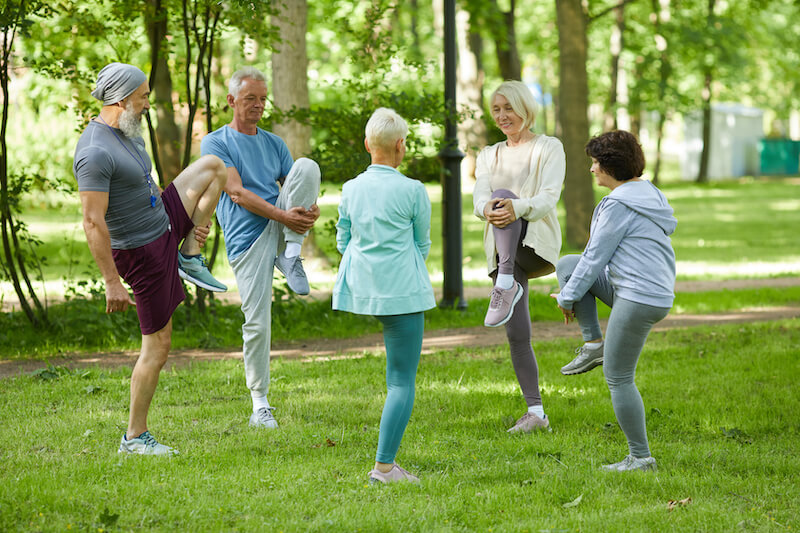As we age, it becomes increasingly important to prioritize our brain health and stimulate our minds to maintain cognitive abilities and promote overall well-being. Just like physical exercise is crucial for our bodies, mental exercises are vital for the health and vitality of our brains. In this blog, we will explore various strategies and activities to stimulate your brain, helping you stay sharp, engaged, and fulfilled in your senior years.

Stimulate Your Brain:
Puzzles: Exercising Your Mind with Brainteasers
Engaging in puzzles, such as crosswords, Sudoku, and jigsaw puzzles, provides a fantastic way to challenge your brain. These activities stimulate your problem-solving skills, enhance memory, and improve cognitive flexibility. Set aside dedicated time each day to work on puzzles that pique your interest and offer a healthy mental challenge.
Trivia Games: Fun and Educational Brain Boosters
Participating in trivia games, either alone or with friends and family, can be an entertaining way to stimulate your brain. Whether it’s general knowledge or specialized topics, trivia games require recall, memory retrieval, and quick thinking. Engage in online trivia contests or join local groups that organize trivia nights to enjoy the social aspect as well.
Read Books: Expanding Your Horizons
Reading is a powerful activity that not only transports us to different worlds but also exercises our brains. Choose a variety of genres, including educational books, non-fiction titles, and memoirs, to stimulate your mind. Reading enhances vocabulary, comprehension, and critical thinking skills, while also providing an opportunity for relaxation and self-reflection.

Exercise Regularly:
Cardio: Important for Heart Health and Healthy Blood Pressure
Engaging in regular cardiovascular exercises, such as brisk walking, swimming, or cycling, is not only beneficial for your physical health but also supports brain function. Cardiovascular exercises improve blood flow to the brain, delivering oxygen and essential nutrients that enhance cognitive abilities. Aim for at least 30 minutes of moderate-intensity cardio exercises most days of the week.
Strength Training: Weights for a Strong Body and Mind
Strength training exercises, involving weights or resistance bands, help maintain muscle mass and bone density. Beyond physical benefits, strength training also supports brain health. Studies have shown that strength training improves cognitive function, memory, and attention span in older adults. Incorporate strength training exercises into your routine two to three times a week for optimal results.
Make it Fun:
Aerobics, Zumba, and Kayaking Exercise doesn’t have to be a chore. Engaging in activities that you enjoy makes it more likely to stick to a regular exercise routine. Consider joining aerobic classes, trying out Zumba dance workouts, or taking up kayaking. These activities not only provide physical benefits but also offer mental stimulation and a sense of fun and accomplishment.

Watch Your Diet:
Moderate Sugar Intake: A Sweet Balance
While indulging in sugary treats occasionally is okay, it’s important to moderate your sugar intake. Opt for healthier alternatives and limit processed sugary foods. Choose natural sources of sweetness like fruits and opt for low-sugar or sugar-free options when available.
Nutritious Diet: Fueling Your Brain
Maintaining a well-balanced diet is crucial for brain health. Include a variety of nutrient-rich foods such as lean proteins, whole grains, fruits, vegetables, and healthy fats. These provide essential vitamins, minerals, and antioxidants that support brain function and protect against cognitive decline. Stay hydrated by drinking an adequate amount of water throughout the day.
Limit Alcohol Consumption:
The National Institute on Alcohol Abuse and Alcoholism advises that individuals older than age 65 who are healthy and not taking any medications should have no more than seven drinks per week. Excessive alcohol consumption can have detrimental effects on brain health, memory, and overall well-being. Drink alcohol in moderation or consider abstaining altogether for better brain health.
Socialize More:
Enhance Social Engagement: A Key to Brain Health
Research shows that individuals with consistently high or increased social engagement have a lower risk of dementia compared to those with consistently low social engagement. Make an effort to join social groups, such as book clubs or hobby clubs, where you can connect with like-minded individuals. Engaging in social activities promotes mental stimulation, emotional well-being, and a sense of belonging.
Taking care of your brain health is a lifelong journey, and incorporating these strategies into your daily life can have a profound impact. Stimulating your brain with puzzles, engaging in regular exercise, maintaining a nutritious diet, moderating alcohol consumption, and actively socializing are all essential elements of a comprehensive brain stimulation plan. Embrace these activities as part of your lifestyle to unlock your brain’s potential and enjoy a fulfilling and vibrant senior life.




